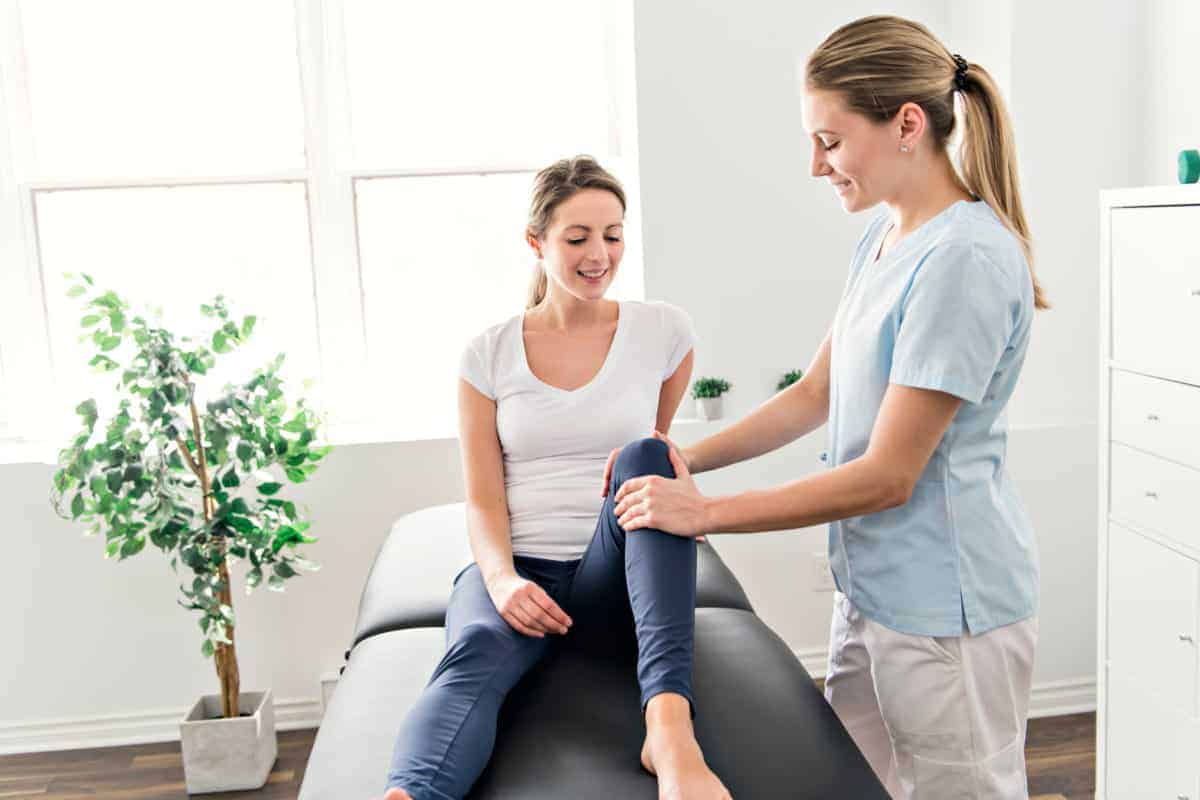
A physiotherapist will first provide their patients with an initial assessment, and then, based on the results of the evaluation, provide their patients with the best course of treatment.
Common Conditions Treated With Physiotherapy
The ultimate goal is to provide relief from pain, increase range of motion as well as increasing strength and flexibility. Orthopedic conditions that are often treated by physiotherapists include:
- Ligament Strain, Sprain or tear
- Fracture Rehabilitation
- Inflammation of tendons or Bursa
- Rheumatoid – Arthritis
- Osteoporosis
- Ankylosing Spondylitis
- Scoliosis
- Spondylolisthesis
- Spondylolysis
When a patient undergoes physiotherapy, their overall physical and cardiovascular health improves, which can be extremely beneficial for pre-operative care. In regards to joint physiotherapy, the range of motion in the joints is greatly improved before surgery. When this type of care is implemented prior to surgery, the outcome and post-operative success are that much greater. Physio treatments of orthopedic conditions can include the following:
- Manual therapy is mobilization, manipulation, and other related techniques to get the joints moving and reduce pain.
- Massage therapy consists of light pressure to deep friction massage, which can help break down scar tissue in muscles or ligaments.
- Ultrasound therapy is an electrical machine that transmits waves to the affected area that is meant to promote circulation, reduce pain as well as a regenerative approach. This method has been proven to be effective for soft tissue injuries.
- Interferential therapy is an electrical current delivered to the injured part via 2 or 4 electrodes. It sends two interfering currents into the body part, which feels to the patient like pins and needles. It can be used to relieve pain, reduce swelling, and optimize the healing process.
- Neuromuscular stimulation is an electrical machine with variable currents which is applied using electrodes to strengthen very weak muscles. This therapy has been proven to be useful following knee surgery to strengthen the muscles that support the knee.
- A dry-needling approach is a western medicine approach which involves the insertion of needles into the muscles. This approach changes the way your body reacts to pain by helping the body heal trigger points. Electrical and biochemical changes are associated with this technique and ultimately assist in the healing process.
- Acupuncture is the insertion of fine needles that can treat multiple conditions. This therapy helps to reduce pain and normalize movement.
The sooner injuries are addressed, the better chance you will have at a full recovery. To learn more about our physiotherapy treatment options, contact our Atlanta orthopedic doctors by dialing (404) 855-2141 today!


